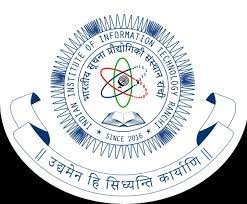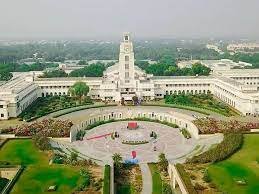Graduates of M.Sc. Environmental Studies programs are well-equipped to work in environmental management, policy analysis, conservation, and sustainable development. They play critical roles in addressing global environmental issues and promoting sustainability.
Future Scope & Benefits for M.Sc. in Environmental Studies Course
The Master of Science (M.Sc.) in Environmental Studies is a multidisciplinary program designed to equip students with the knowledge and skills necessary to address complex environmental challenges. This field is becoming increasingly critical due to growing concerns about climate change, biodiversity loss, pollution, and sustainable resource management. The future scope and benefits of pursuing an M.Sc. in Environmental Studies.
Future Scope of an M.Sc. in Environmental Studies Degree
The future scope of an M.Sc. in Environmental Studies is promising. With increasing environmental concerns, there is a growing demand for experts who can address complex ecological issues, devise sustainable solutions, and implement environmental policies. Graduates can find opportunities in environmental consulting, conservation organizations, government agencies, and research institutions, contributing to a greener and more sustainable future.
-
Environmental Consultant: Environmental consultants work with governments, businesses, and non-profit organizations to assess environmental impacts, develop sustainable practices, and ensure compliance with environmental regulations. The demand for consultants is expected to rise as environmental concerns become more prominent.
-
Sustainability Manager: Sustainability managers are responsible for developing and implementing strategies to reduce an organization's environmental footprint, promote social responsibility, and improve overall sustainability. As companies seek to become more environmentally conscious, this role is in high demand.
-
Environmental Policy Analyst: Policy analysts work with government agencies and advocacy groups to shape environmental regulations and policies. They conduct research, analyze data, and provide recommendations to address environmental issues.
-
Conservation Scientist: Conservation scientists work to protect natural resources and wildlife. They research and implement strategies for conserving ecosystems, managing protected areas, and mitigating the impacts of human activities on the environment.
-
Environmental Educator: Environmental educators teach and raise awareness about environmental issues in schools, museums, nature centres, and community organizations. Their role is vital in fostering a sense of environmental responsibility in future generations.
-
Climate Change Analyst: Climate change analysts focus on understanding the impacts of climate change and developing mitigation and adaptation strategies. They work in various sectors, including government agencies, research institutions, and non-profit organizations.
-
Environmental Journalist: Environmental journalists communicate complex environmental issues to the public through various media outlets. They play a crucial role in informing the public and advocating for environmental awareness and action.
-
Research Scientist: Environmental studies graduates often pursue research careers in academia, government agencies, or private research institutions. They investigate topics such as ecology, conservation, pollution, and climate change.
-
Non-Profit and NGO Work: Many non-profit organizations and non-governmental organizations (NGOs) focus on environmental conservation and advocacy. Graduates can work for these organizations to drive positive change.
Benefits of Pursuing an M.Sc. in Environmental Studies
Pursuing an M.Sc. in Environmental Studies offers numerous benefits. Graduates gain in-depth knowledge of environmental issues and sustainable practices, making them valuable contributors to environmental conservation efforts. They can engage in research, policy development, and environmental education, promoting a healthier planet. This degree also opens doors to diverse career opportunities in both the public and private sectors, addressing pressing global challenges.
-
Impactful Career: Graduates of this program have the opportunity to work on issues of global significance, contributing to solutions for environmental challenges and making a positive impact on the planet.
-
Interdisciplinary Knowledge: Environmental studies encompass a wide range of disciplines, including ecology, policy, economics, and social sciences. Graduates gain a holistic understanding of environmental issues, making them versatile professionals.
-
Growing Job Market: As environmental concerns continue to rise, there is a growing demand for professionals with expertise in environmental studies. This translates to increased job opportunities and job security.
-
Varied Career Paths: Environmental studies graduates can choose from diverse career paths, allowing them to follow their interests and passions within the field.
-
Global Relevance: Environmental challenges are not limited by borders. Graduates have the opportunity to work on international projects and collaborate with organizations worldwide.
-
Influence Policy and Decision-Making: Professionals in this field often play a role in shaping environmental policies and regulations, influencing government and industry practices.
-
Personal Fulfillment: Many individuals are drawn to environmental studies because of their deep-seated passion for the environment. Working in this field can be personally fulfilling as it aligns with their values.
 2 Years
2 Years
 Post Graduate
Post Graduate
 Science
Science














 back
back